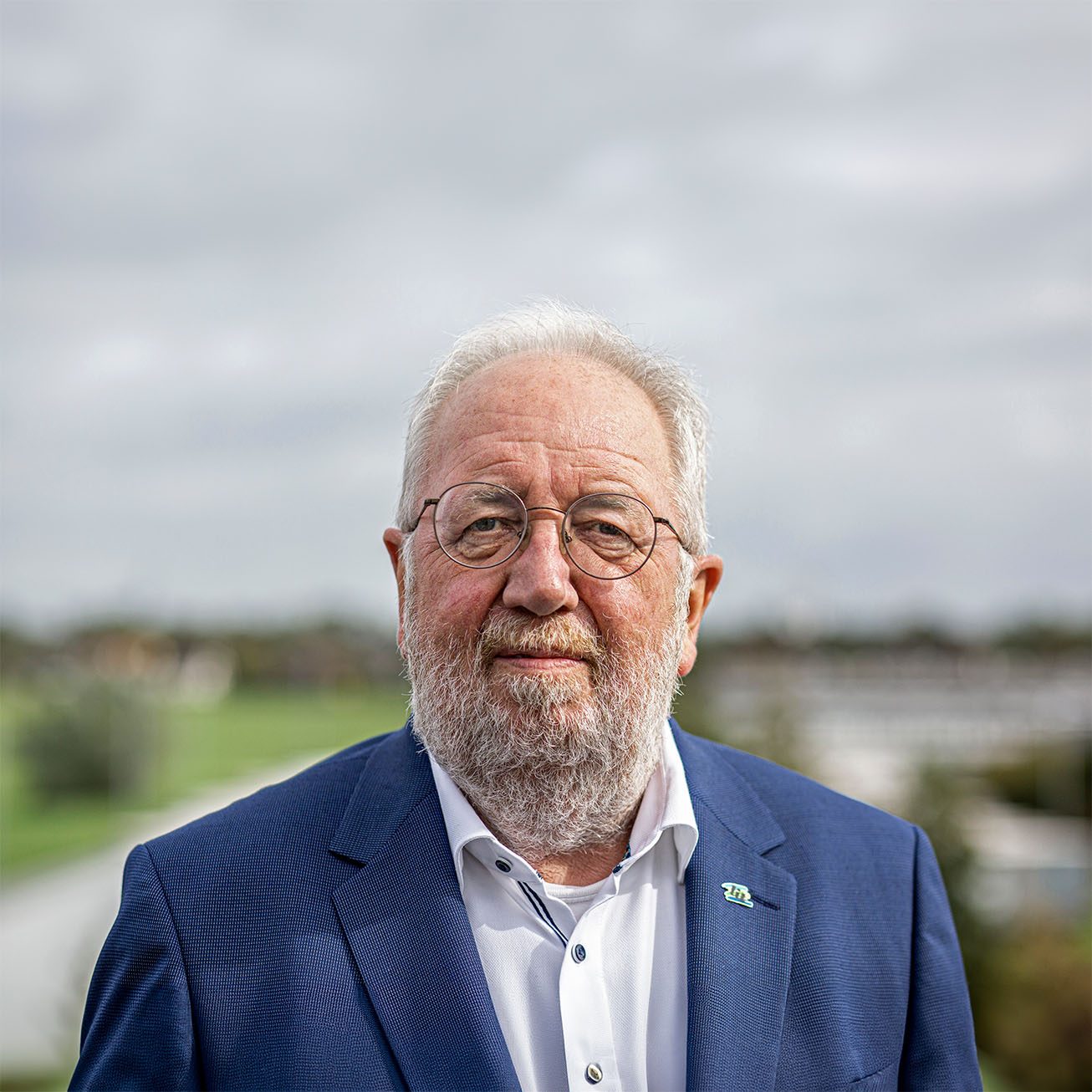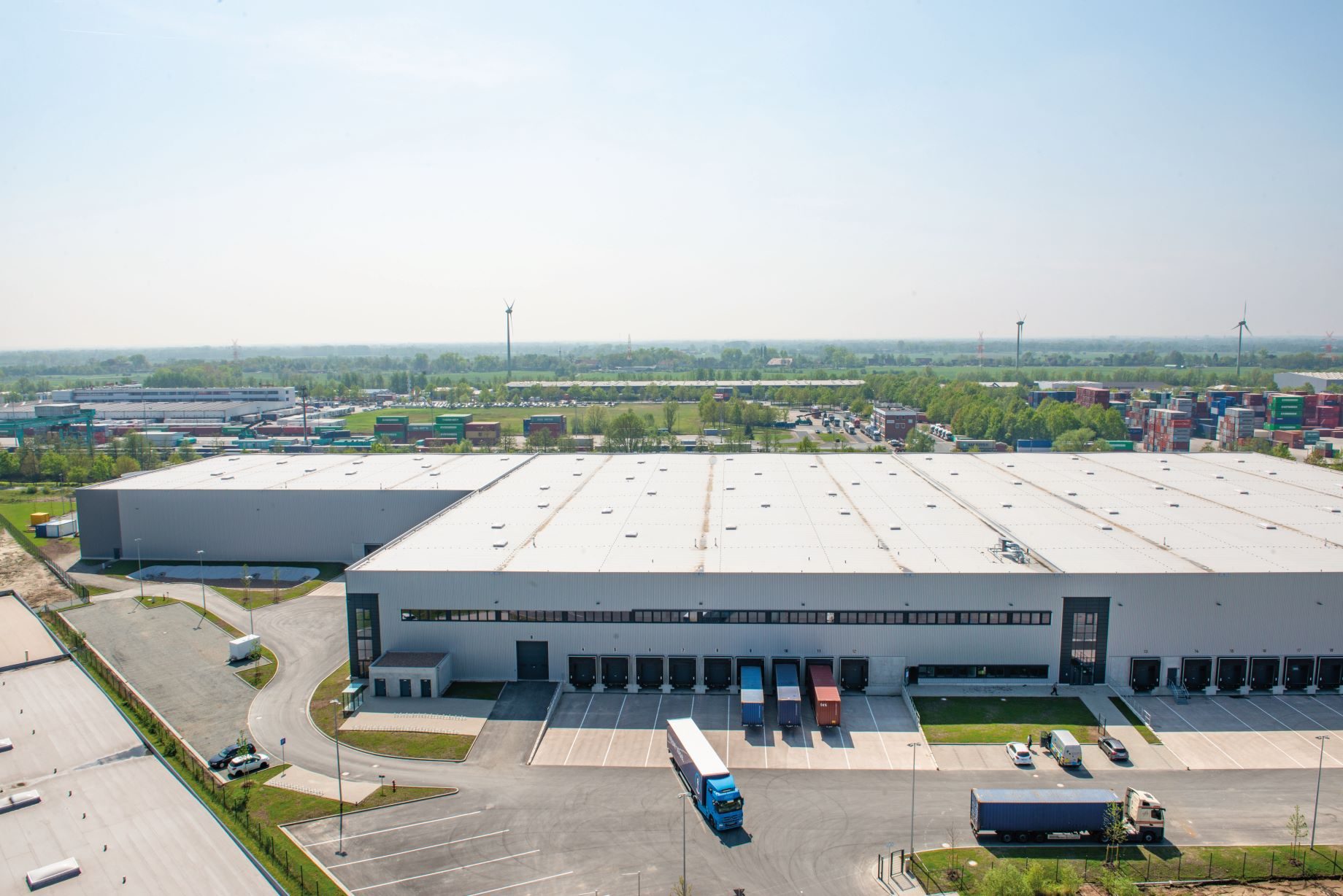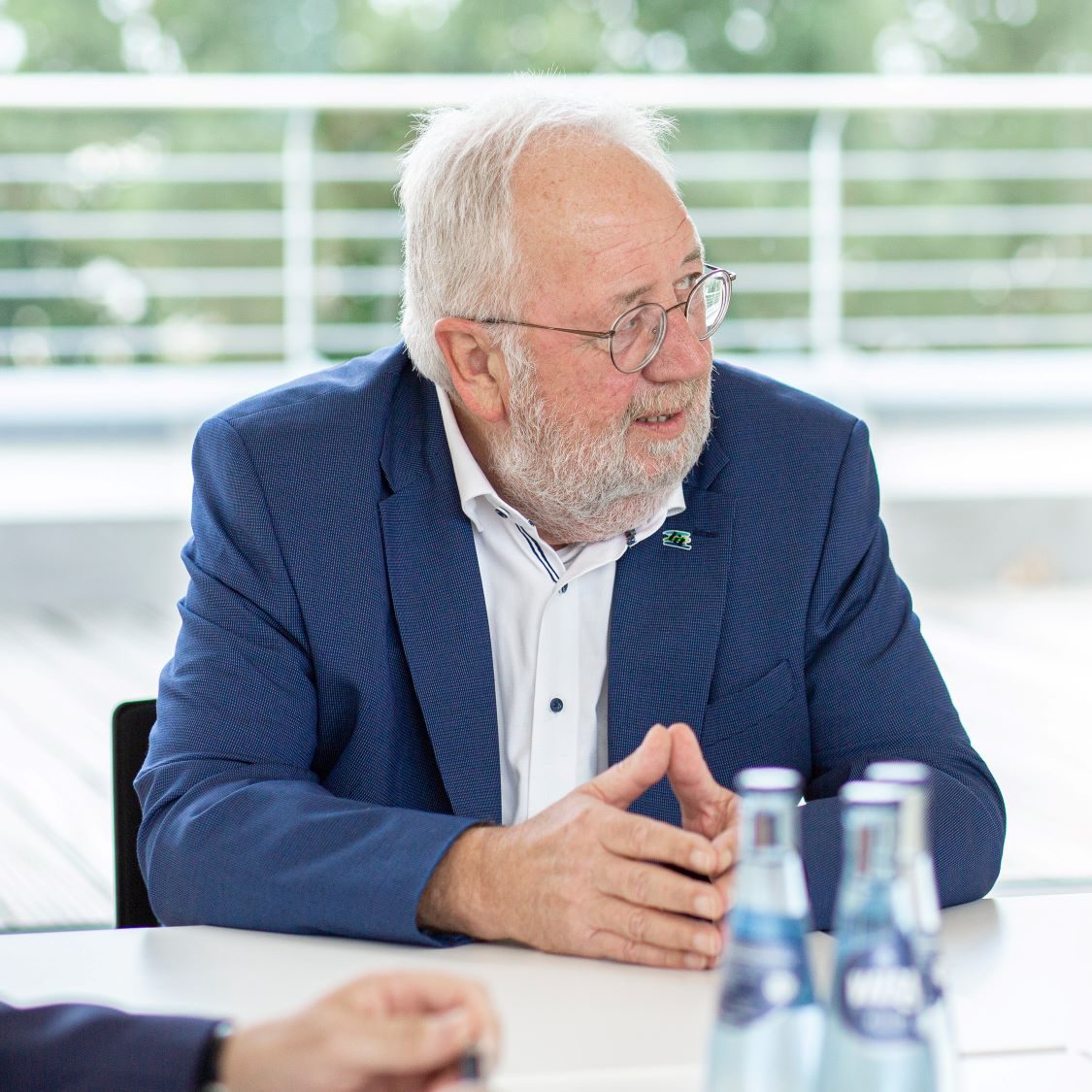Chairman Fokke Fels in an interview with DVZ

LIT AG, based in Brake, has been growing rapidly for several years. CEO and owner Fokke Fels explains why and what else he has planned.
Fokke Fels is the proverbial thoroughbred entrepreneur. At the age of 66, he is not even thinking of retiring. In fact, last year he extended his contract as CEO of his LIT AG by another five years. In this role, he remains active in the operational business – albeit not with the same intensity as before.
But why is he doing this? “We are currently in an expansive phase. And I want to send a signal to the team that the captain is staying on board”, says the sole owner of the company, using an image from the shipping industry.
LIT has been expanding strongly for several years. Over the past five years, unconsolidated turnover has more than doubled from 391 million euros (2018) to 835 million euros (2023). Even in the past year, which was really not easy for the industry, LIT bucked the trend and grew by almost EUR 100 million or 15 per cent. “2023 was a very good year for the Group. We had good contracts and good capacity utilisation”, Fels concludes. The target for the current year is a turnover of 930 million euros, and in 2025 “we will probably reach 1 billion.”
How does that work? The basis for this development was a significant change in strategy in 2008: at that time, during the economic crisis triggered by the financial sector, LIT was very automotive-orientated and therefore jumbo transport-heavy, Fels recalls. Around two thirds of the business at the time was dependent on the automotive industry. “We wanted to move away from this dependency.” Today, the automotive segment only accounts for 20 per cent of turnover. In addition, the principle at LIT is that no customer should contribute more than 5 per cent of total revenue.
Various acquisitions, with which LIT has broadened its base in recent years, are responsible for a significant part of the growth. Companies such as Kieserling, Hölkemeier, Westfalia, part of the Würfel Group, Fehrenkötter and the Gübau Group belong to LIT. They have all developed very positively under the LIT umbrella, emphasises Fels. The Kieserling acquisition in 2018 was a milestone, “it was the basis for our entry into contract logistics and the air and sea freight sector.” However, cross-selling within the LIT Group also contributed to growth.
Room for new things
At the same time, the LIT owner has “given the team room to tackle new things and acquire completely new business.” One example: Kieserling Contract & Logistics in northern Germany has been working for the online giant Amazon on the last mile since 2019. Around 400 vehicles are now on the road at various locations in northern Germany – all with the company’s own staff, as Fels emphasises.
“We have accelerated growth in recent years and deliberately accepted lower returns”, says Fels, describing the approach. New businesses or new plants in particular usually cause start-up losses, “but existing businesses have to be profitable.”
For example, the EBIT margin in 2021 and 2022 was a modest 1.5 per cent in relation to unconsolidated sales. However, the LIT boss says that profitability should take centre stage in future. “We should be aiming for 3 to 4 per cent”, a figure that the Group achieved in 2023.

Conversely, this does not mean that the Group no longer wants to grow. On the contrary, “we want to – organically and through acquisitions.” The current size of LIT with around 4,000 employees “is enough for today and tomorrow, but will it still be enough in five years’ time?” The LIT boss is not sure. But because he definitely wants to continue to operate as an independent player on the market, “we will have to grow”, he concludes.
Speaking of acquisitions: in principle, the entrepreneur believes it is possible to integrate up to three or four acquisitions per year. “I assume that we will finalise one or two deals in the current year”, he announces. The aim will be to further strengthen the transport sector, but he also sees prospects in the specialised services sector in contract logistics. However, he has not yet named any potential acquisitions.
Nevertheless, LIT is not pursuing an active, targeted acquisition policy, “there is no list of 50 companies that we want to work through.” Instead, Fels is often approached by entrepreneurs who are looking for a long-term succession solution for their businesses.
As a rule, the acquisitions operate independently on the market even after being taken over by LIT. Synergies are achieved in administration and purchasing, which is why Fels is focussing on companies with their own vehicle fleets. These must be successful in their market segment and be recognised as specialists there. And they must be profitable, not cases of reorganisation, is the clear message.
Contract logistics is currently a key growth driver. In the current year, warehouse capacity is to be significantly increased again – from the current 850,000 to 950,000 square metres. In Minden alone, one of LIT’s key locations in contract logistics alongside Bremen and Germersheim, a facility with 45,000 square metres of space is being built for around 30 million euros.
In addition, the subsidiary Automotive Solutions was founded in 2022 specifically for customers from the automotive industry who have a special requirements profile in contract logistics. In view of the declining number of players in this market, Fels plans for LIT to grow strongly in this segment.
LIT is also significantly expanding its involvement in the sea and air freight business in the coming months. The company is in the process of expanding its global presence. A new company will be founded in Singapore in the next few days, which will act as a holding company for the LIT overseas warehouses, Fels announces. In addition, a separate office in Istanbul will also be launched at the end of May, and a branch in Shenzhen, China, is planned for a few weeks later. In Busan, a 50 per cent stake in a Korean company is planned. “We are in the final talks there”, he indicates. Further investments are planned in Bangalore (India), the USA, Vietnam and Mexico. The turnover of this LIT division is set to double from 22 million euros in 2023 to 50 million in the coming year.
The AG acts as a kind of platform for the 70 LIT companies operating on the market, which generally have between 50 and 150 employees. They are each managed by one person. In line with this basic principle, the acquired companies continue to operate independently on the market. From the head office in Brake, around 200 employees primarily manage the administration, and the Management Board itself is also based there.
In addition to making it easier to manage the operating business, this structure has another advantage: “We are not perceived as a group, but rather as what we are – a large medium-sized company. And I firmly believe that the medium-sized company is also favoured by many customers due to the personal approach”, says Fels. Even large customers – names such as Daimler, Knauf, Unilever, Melitta and Mars are on the reference list – value personal contact and continuity, he emphasises. “Despite all the digitalisation and automation, logistics is still a people’s business.”
An important future topic for the company is mastering digital change. Resources are to be expanded accordingly. The I in the company name has always stood for information – Fels is proud to say that the company has developed all the key IT solutions itself. He therefore considers this area and the great openness to process-related solutions to be important unique selling points of the Group. The subsidiary Comlogis is responsible for this. Incidentally, the L stands for logistics, the T for transport.
Fels also wants to further expand combined transport. LIT has been operating the joint venture Smartrail Logistics together with rail logistics company Captrain Deutschland for years in order to link lorries and rail freight. For example, Smartrail markets three weekly trains from Dresden to Emden with components for the VW plant there. ‘The combined transport market in Germany and Europe is currently being restructured, and we want to get involved”, emphasises Fels.
Even if the childless LIT founder wants to stay on board until the end of 2028 – what are the succession plans? He wants LIT to remain independent in any case. The shareholder role will therefore be taken over by a foundation, which Fels and his wife Anke Hollmann are currently working hard to establish. But it will be some time before he retires anyway.

LIT at a glance
© 2025 L.I.T. AG · Otto-Hahn-Straße 18 · 26919 Brake Data protection | Imprint | Gender regulation | Manage consent | Complaint form | AGB
© 2025 L.I.T. AG · Otto-Hahn-Straße 18 · 26919 Brake
Data protection | Imprint | Gender regulation | Manage consent | Complaint form | AGB
© 2025 L.I.T. AG
Otto-Hahn-Straße 18 · 26919 Brake
Data protection | Imprint
Gender regulation | Manage consent
Complaint form | AGB